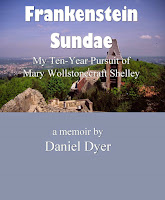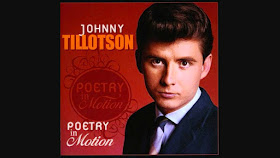1.
AOTW--The city of Hudson for changing the turn-lane configuration on northbound Ohio 91 at the intersection of Ohio 303--with no warning signs. All they did was change the paint on the road. Some near collisions I saw yesterday--one involving me.
2. I finished two books this week.
- I finally finished Richard Russo's wonderful
Bridge of Sighs (2007), a novel which I read back in 2007 but had
no memory of. (Not that I'm alarmed, mind you.) But since I've been reading my way through all of Russo--pretty much in sequence--I read it again, this time taking notes (which, given my handwriting, I'll probably not be able to read later on anyhow).
The novel is another of his tales of a small upstate New York town, a town in near economic collapse, a town whose water supply has been poisoned by the local (defunct) tannery, which once employed many people in town. (The title, which alludes directly to a famous bridge in Venice--it used to connect to a prison (thus, a reason to sigh!), also has other direct and metaphorical meanings in the novel. One of the main characters, as a boy, has an experience on a rough bridge in his small town.)
Russo gives us a variety of points of view here--some in first person by a young man, Lou, who has stayed in town after some time in college; he's taken over his father's mini-mart business (which is always on the edge of collapse, as well) and has married the young woman, an artist, with whom he fell in love in junior high school.

We also get her side of things from time to time--including the complications of her heart. But the other principal character is one of Lou's old friends from school--though Lou was always much for fond of Bobby than Bobby was of him. Sort of. Bobby has changed his name and become a famous artist, now living in Italy, who's about to have a big show open in NYC.
Well, what does this all add up to? The American family, sexual confusion, economic woes, the nature of art, marriage, fraternity (actual and metaphorical), parenthood (so many of Russo's characters--in this and other novels--have experienced personal implosions), the nature of "truth" of regret of failure of success of ... you name it. The splendid and terrible intricacies of the human heart.
This is a rich, enormously powerful, emotionally (and structurally) complex novel, and because I read virtually all of it in public places (coffee shops), I found myself, again and again, weeping in public places. I'm quickly becoming known in town as That Old Guy Who Cries While He Reads.
- The second book I finished this week is the (much) shorter new novel by Ian McEwan--
Nutshell. Based (loosely) on the plot of
Hamlet, the novel, set today in London, is narrated by the Hamlet figure, who, here, is still in the womb, relying on what he can sense outside. His mother, Trudy (Gertrude!), and his uncle, Claude (Claudius!), are ... "carrying on" and decide they need to off the yet-to-be-born's father, known here as John Cairncross (!!). Cairncross is a poet, a publisher of poems, a man with a devoted following, a man without much money--though he does have a large (inherited) place which is now worth a lot. Another reason to off him, right?
The novel--only about 200 pages--is jammed with allusions to
Hamlet (and to other plays by the Bard--including
Richard II, another play about removing and killing a king, and
Henry IV, Part 2, also about the struggle for the crown). Of course, the title itself is from Hamlet's witty conversation with his old "friends," Rosencrantz and Guildenstern--
O God, I
could be bounded in a nut shell and count myself a
king of infinite space, were it not that I have bad
dreams. (This serves, as well, as the novel's epigraph.)

There are also numerous allusions to other poems and literary works throughout--including the information that Cairncross has memorized about 1000 poems, a figure that makes my 183 seem awfully puny! (One of Cairncross', by the way, is "The Cremation of Sam McGee," a poem my 8th graders memorized my final half-dozen years or so at Harmon Middle School). Among the other poems McEwan mentions (almost never by name) are by Auden and Michael Drayton. (I Googled the Auden poem, "Autumn Song," and liked it so much I'm going to memorize it this week!
Link to the poem.)
Just a few moments from
Hamlet that McEwan reimagines and plays with here: Claude calls Trudy his "mouse"; the murder will involve poison (though not in the ear--but an ear poison
is mentioned later); the baby has a vision of a ghost of his father; someone protests too much; Claude comments that death is common; and on and on ...
Were I still teaching
Hamlet at Western Reserve Academy, I would
definitely have the kids read this novel, too. They would feel like geniuses!
A wonderful novel, lyrical and wrenching, intelligent and allusive, with the building fury and momentum of a cyclone.
Last night, I inadvertently spilled to Joyce how the plot is tipped (excuse: I didn't know she was going to read it), and I'm not sure I'll be forgiven for a long, long,
long time. So I'll say to more ...

3. Speaking of last night--we went to the Kent Plaza Cinemas (where we've seen films throughout our entire marriage) to see
Hell or High Water, a modern Western set in west Texas (and some in Oklahoma), a sort of
Bonnie and Clyde story about two brothers who rob some banks and are pursued by a Texas Ranger nearing retirement, played wonderfully well by Jeff Bridges. Strong performances as well by Chris Pine (who is almost too handsome to convince that he's a down-on-his-luck Texan) and Ben Foster. The cinematography alone is worth the admission price, by the way--such a contrast of vast plains vistas and the collapse of the small-town economies and cultures.
I ain't gonna say (my Oklahoma lingo returning!) how it turns out cuz I reckon lots of you are gonna see it. You should--though (surprise! surprise!) there is some violence. (
Link to trailer for the film.)
4. Still trying to finish
William and Mary (via Netflix DVD), the Brit series about the relationship between an undertaker and a midwife and their not-so-blended family. Losing interest, I fear ... but we're nearly done.
5. And we got word from Netflix this week that two of our favorites,
Luther and
Longmire, are up now (the former) and about to be up (the latter) for streaming!
6. Final Word(s): Some words I liked this week, words that popped up on my various word-of-the-day online services.
- from the
OED:
ommatophore, n. Zool. A part of an invertebrate animal, esp. a
tentacle, that bears an eye; an eyestalk.
Forms: 18
ommatophor, 18– ommatophore.
Origin:A borrowing from German. Etymon: German Ommatophor.
Etymology: <
German Ommatophor (1878 in the source translated in quot. 1878 at main sense)
< ancient Greek ὄμματ-, ὄμμα eye (see
ommateum n.) + German -o- -o- connective + -phor -phore comb. form.
1878 F. J. Bell tr.
C. Gegenbaur Elements Compar. Anat. 354 The tentacle..which may be converted
into a special eye-stalk (ommatophor).
1890 Cent. Dict. at Ommatophore, The ommatophores of
crustaceans are called ophthalmites.
1967 Indo-Pacific Mollusca 445 The ommatophores are very
long, and the tentacles..are extremely small and located just behind the
distally-located eyeball.
1991 Acta Zoologica 72 233 The brain commissures and the
innervation of, inter alia, the antennae, the palps and the ommatophores..are
described.
- from the OED: noctambulate, v. intr.
To walk about at night.
Origin:Formed within English, by compounding. Etymons:
nocti- comb. form, ambulate v.
Etymology: <
nocti- comb. form + ambulate v., after noctambulation n., noctambulator
n. Compare French noctambuler (1866). Compare earlier somnambulate vb. at somn-
comb. form .
1955 H. Spring These
Lovers fled Away 206 Now and then I would noctambulate through the city.
1988 R. Johnson Oxf.
Myths 21 Right up until the nineteenth century the University police could
arrest citizens for noctambulating.
1993 A. Lane et
al. Subterranean World(song) in A. Lane Dirty Pearl (record sleeve notes),
All the bushy brats turned out from The western burgs..Noctambulating around
nowheresville.
- from dictionary.com: overweening \OH-ver-WEE-ning\ adj.
1. presumptuously conceited, overconfident, or proud: a
brash, insolent, overweening fellow.
2. exaggerated, excessive, or arrogant: overweening
prejudice; overweening pride.
Quotes
He was an envious and overweening man who resented the fact
that Sir Balin had won the sword.
-- Peter Ackroyd, The Death of King Arthur: The Immortal
Legend; A Retelling, 2010
Origin of overweening
Overweening is
formed from the verb overween meaning "to be conceited or arrogant."
The older verb ween means "to think; suppose" or "to expect,
hope, or intend." Overweening entered English in the mid-1300s.


























